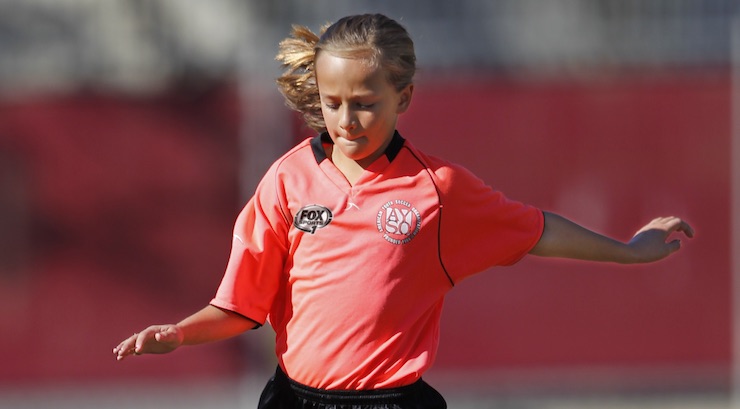SoccerToday Spotlight Series: Scott Snyder on The Biggest Challenges In Youth Soccer Today
Scott Snyder has provided the basis for youth soccer development through his experience at the professional level as well as working closely with U.S. Soccer. Snyder is the author of the updated AYSO National Coaching Curriculum and remains present in the community as a volunteer coach for his local AYSO United team.
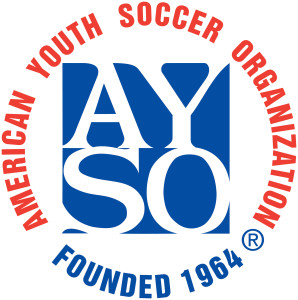 Scott Snyder is the Player Development Specialist of American Youth Soccer Organization, the oldest national youth soccer program in the United States. Known best by its initials, AYSO, this program is the thriving hub to millions of soccer loving families all across the USA.
Scott Snyder is the Player Development Specialist of American Youth Soccer Organization, the oldest national youth soccer program in the United States. Known best by its initials, AYSO, this program is the thriving hub to millions of soccer loving families all across the USA.
Scott Snyder is a soccer insider — a former professional player on both sides of the Atlantic.
Snyder played in England and USA and chose to give back to the beautiful game, working in youth soccer since 1990.
The author of the updated AYSO National Coaching Curriculum covering U4-U19, including the applicable coach certification courses — 2017 will be Scott’s 4th year presenting at the NSCAA Convention.
Related Article: NSCAA Comes to LA for 2017 Coaching Convention
Snyder works closely with U.S. Soccer on youth player development and coach education. Never one to just sit behind a desk, Snyder is also the volunteer coach of his local AYSO United GU15 team.
SoccerToday’s Diane Scavuzzo exclusive interview with Snyder on soccer development in the United States — and why the challenges are so very real.
Diane Scavuzzo: What is wrong in youth soccer today? What is working well?
Scott Snyder: There are many more positives than negatives in youth soccer today and we should all appreciate where our game is today.
However, with today’s quantity of youth players and industry sophistication, we have to ask ourselves, are we producing enough of a world-class standard on the boys side? Are we developing the “quantity” and the “type” of player to start at some of the top teams in the world?
It’s refreshing to see Christian Pulisic make his mark at Borussia Dortmund, but he should not be an anomaly.
The U.S. Soccer Development Academies are definitely the right pathway and perhaps it’s still too early to judge their overall impact. However, there is still a vast quantity of non-DA clubs and organizations out there influencing the game.
I am 100% convinced world-class talent is here, but the question remains, what are we — as a community — doing to maximize the potential?
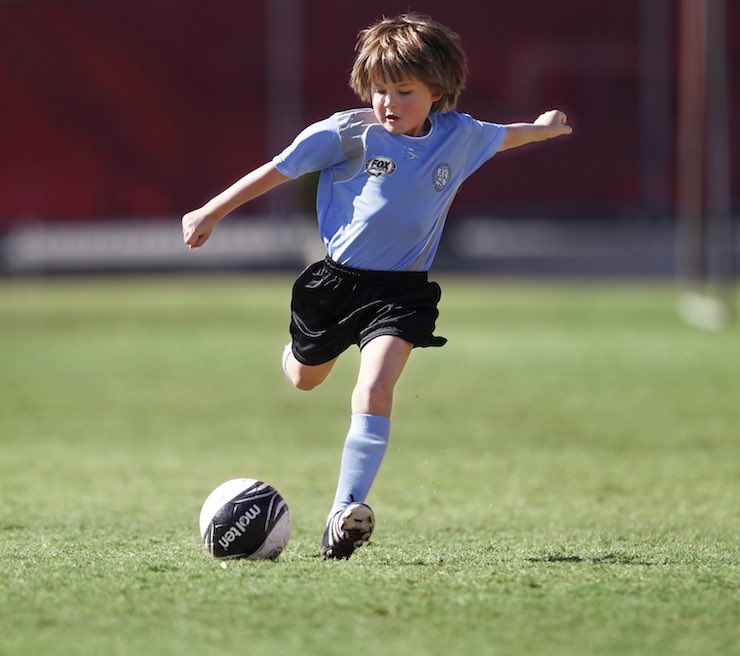 Diane Scavuzzo: How has player development changed in the last 5 years? In the last decade? When you played as a youth, how was it different? What was it like preparing for the U-20 U.S. World Cup Team?
Diane Scavuzzo: How has player development changed in the last 5 years? In the last decade? When you played as a youth, how was it different? What was it like preparing for the U-20 U.S. World Cup Team?
Scott Snyder: Soccer is now a mainstream sport in the USA.
Soccer is a completely different product from the 80’s.
It is now an expectation for most U.S. National teams to make their respective World Cup — and place. In the 80’s, our U-20 team was unexpected. It was an important team and it launched the careers of some very important players — Tab Ramos, the current U.S. Soccer Youth Technical Director, Paul Caliguri, and Hugo Perez to name a few of my teammates.
Diane Scavuzzo: How closely does AYSO work with U.S. Soccer?
Scott Snyder: Since 2011’s Zone One rollout, we have worked as close, if not closer, than at any other time.
From instructor workshops to reviewing and contributing to our curriculum rewrite, U.S. Soccer has been extremely generous to AYSO. From Coaching Education Directors Nico Romeijn (and formerly Dave Chesler) to newly appointed Zone One educator Frank Tschan, we are in constant communication with U.S.Soccer.
In fact, AYSO United’s Dave Thomas and myself will attend the upcoming U.S. Soccer Instructor Workshop during the Nike U-17 International Friendlies.
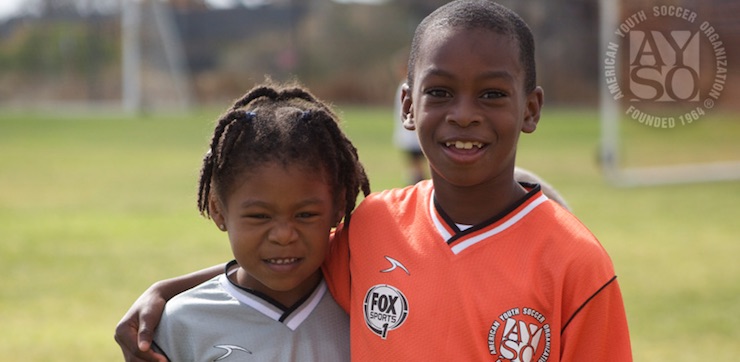
Diane Scavuzzo: What is the greatest challenge facing AYSO?
Scott Snyder: I wouldn’t say it’s a challenge but a major priority is to make sure our core values and philosophies remain relevant and prominent in our programming.
In today’s competitive climate, it is important for AYSO to stay true to what we believe in with our quest to genuinely “enrich children’s lives.”
The game is important, as is player development (one of AYSO’s Philosophies), but it is also important to keep the game in perspective, and provide holistic development for the majority of children who may not be striving for the pros but are playing simply to participate and have fun.
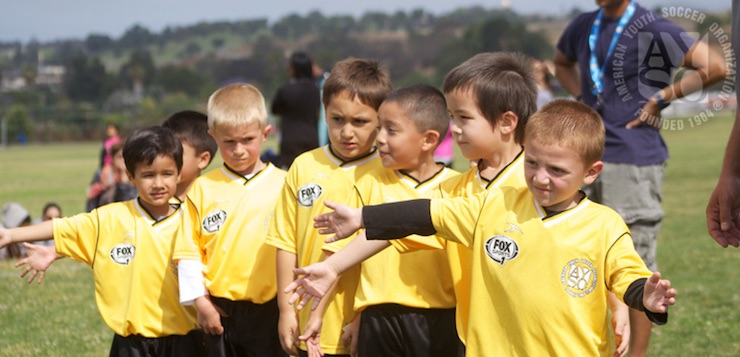
Diane Scavuzzo: Why has so much changed in youth soccer?
Scott Snyder: Sports science and technology have been the catalyst to much of the recent revolution, but web-based information and social media have elevated soccer development to the global stage.
The challenge (and opportunity) with this is to stay current and keep up with worldwide philosophy, methodology and innovation.
In saying that, despite all advancements, two teams still compete to kick a ball into a net. Not that complicated really!
Diane Scavuzzo: Is winning a youth soccer match more important to Americans than…
Scott Snyder: Winning is as American as apple pie!
Winning is in our DNA! It’s part of what makes America so great! But it can be a double-edged sword.
When the quest for a youth team success conflicts with individual player development, winning is really losing. And sadly this is becoming the norm in the current youth soccer climate.
Even with our new competitive program AYSO United, every player must play a minimum of 50% per game…just like they do in U8. Development is much easier if the player actually plays!
Diane Scavuzzo: What is you approach to educating the audience to the fact that player development is more of a journey than one single successful winning season?
Scott Snyder: Persistence! Constant messaging and communications to help educate perspectives on the potential conflict. My favorite quote on the topic is by Johan Cruyff because it connects the individual to team success.
“Success should be measured by demonstrated & documented improvement of each individual (not results). The role of a youth trainer is to improve the skills & habits of each & every footballer in his or her charge. Ironically, if they improve each player, team results improve.”
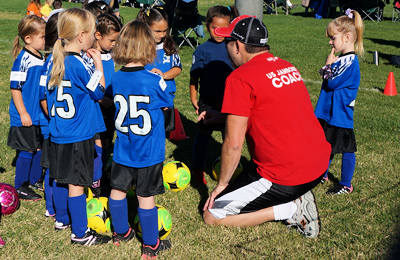
Diane Scavuzzo: What makes the AYSO coach training so successful? What is the methodology?
Scott Snyder: Culturally, the takeaways from U.S. Soccer’s Zone One curriculum naturally resonated with AYSO: Development over Winning, Age Appropriate, Quality Training, Have Fun and Inspire…in fact that is AYSO!
Our curriculum has been completely rewritten since 2011 and blends the federation’s own license updates, specifically, the E, D and C to suit our audience of volunteer parent coaches. Our content is as current and innovative as any youth organization in the nation and tailored for our audience.
However, the main stimulant to improving our playing environments is mandated coach training and certification.
Every coach of every age group must be certified to work with their assigned players. This was an industry-leading commitment to player development.
AYSO’s commitment has made an incredible difference to our players and volunteers.
Diane Scavuzzo: Is training to be a coach of a 7-year-old very different that learning how to develop a team of 12-year-olds?
Scott Snyder: All of our training is age specific so before we get into X’s and O’s, we clearly identify and address the child.
The game is the game — but developmentally, we must understand the psychosocial components, physical capabilities and optimal learning environments for each specific age group.
Only once we understand the child can we safely (and successfully) begin to scaffold our technical and tactical lessons.
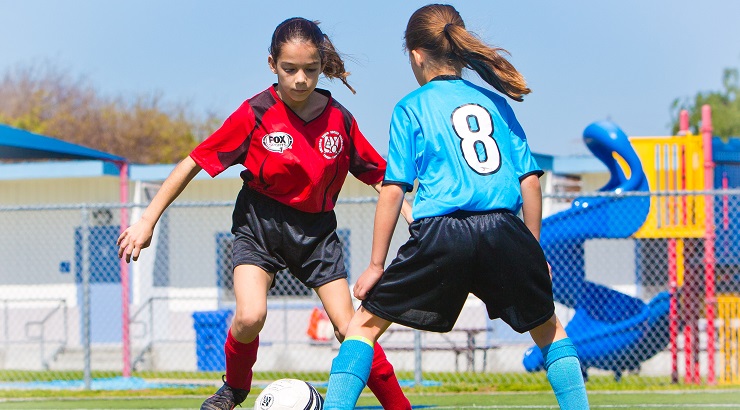
Diane Scavuzzo: AYSO at NSCAA Convention – what can coaches expect?
Scott Snyder: To be involved in such a significant soccer event is a nice reflection on AYSO as a cornerstone to the US soccer infrastructure.
This will be my 4th year presenting at the convention, which I am very appreciative of. I am still tweaking my session but it will be based on player development within Zone One. I feel strongly that we have an obligation to get our coaching environments and development right for this precious age group in order to create a larger pool of quality players for future age divisions…not to mention keep the kids playing!
The NSCAA Session: Saturday, January 14th, 9:30am-10:30am
This year we will also deliver sessions on AYSO United and volunteer recruitment.

